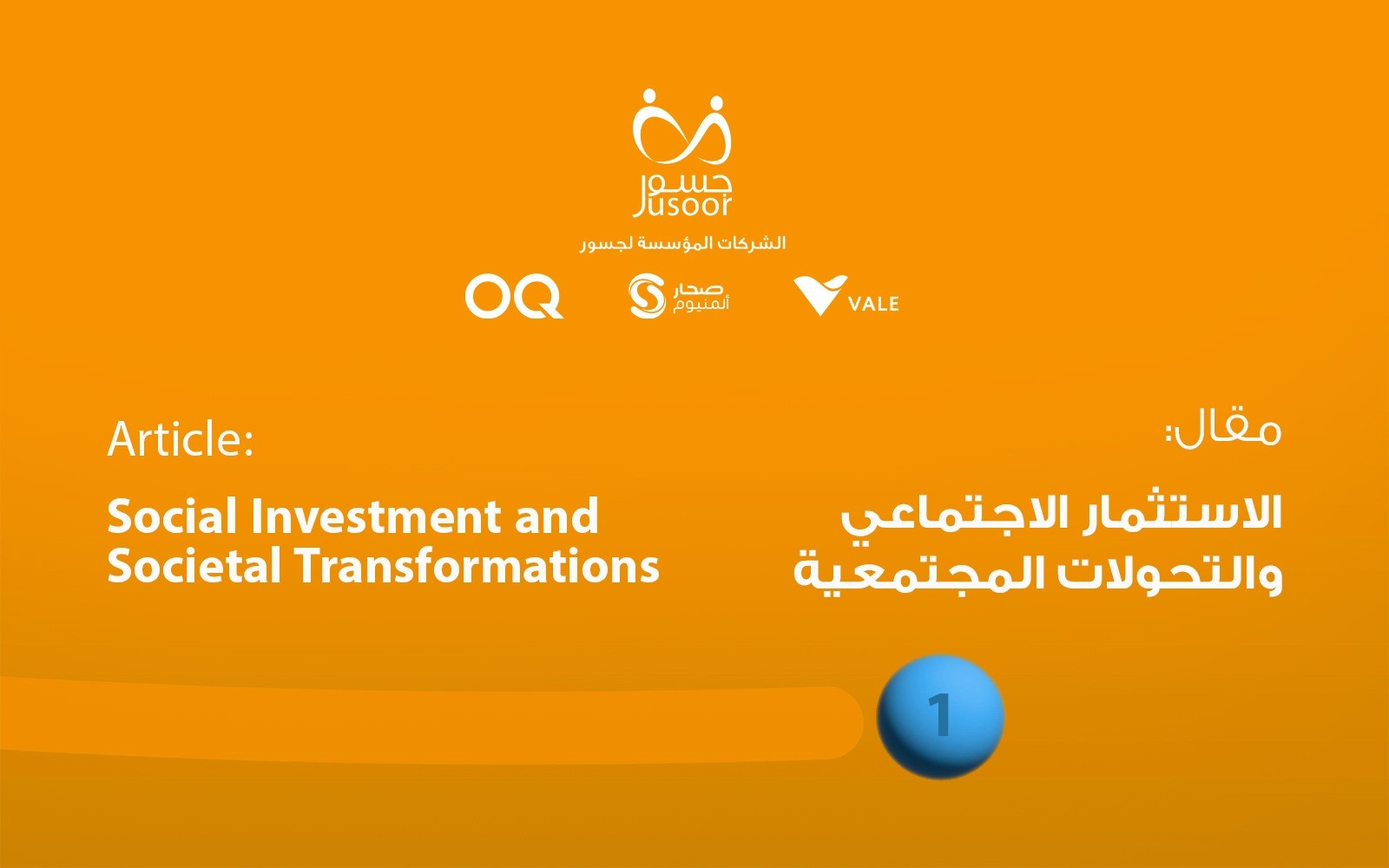24 April 2024
Social Investment and Societal Transformations

Achieving success in social investment requires regular assessment of priorities and work areas. As the field of social investment evolves, it becomes crucial to move beyond initiatives and embrace the concept of Social Impact Investing. The aim is to transform the company’s social contributions into a well-defined and sustainable strategic framework. To achieve this, three key elements must be considered, taking into account the specific country and societal context:
- Regular review of societal priorities and alignment with national priorities.
- Building on results to achieve supported social impact through measurement and accountability.
- Strategic partnership and transitioning to empower the capabilities of social investment.
Jusoor Foundation has made strides in social investment by implementing high-quality projects. During its formative years, the foundation prioritized four main areas of focus: entrepreneurship, education for employment, culture and sports, and health and environment. These areas aligned with national priorities, especially with the objectives specified for the eighth and ninth Five-Year Development Plan, community needs, and the country's direction towards promoting entrepreneurship and empowering youth. They also addressed the growing demand for integrated education systems, environmental sustainability, and population health.
Through its efforts, the foundation has introduced exceptional projects in each area. In entrepreneurship, the "Sana'a" program for 3D design training, employment training initiatives, and capacity-building programs stand out. In culture and sports, noteworthy projects include the Liwa Science and Innovation Center, the Children Exploration Center, and the Grassroots Development Center (Ashbal), as well as investments in sports clubs. The foundation's attention to the environment centered on preserving falajs and establishing and rehabilitating public parks. Lastly, the health sector benefited from the foundation's Dialysis Units, Mobile Mammography Unit, and Rehabilitation and Physiotherapy Center.
As Oman moves towards a new development model that prioritizes human capabilities, social protection and welfare programs, sustainable economic growth, and environmental considerations such as transitioning to carbon net zero, it's important to review social investment priorities. The private sector isn't just an economic development driver and an essential contributor to comprehensive social development. Consequently, the Jusoor Foundation has established new priorities focusing on social welfare, environment, and education.
These areas align with Oman Vision 2040's main pillars and objectives while also corresponding with national programs. After clarifying the social protection system, transitioning to welfare empowerment becomes necessary, requiring empowerment programs for vulnerable groups and qualitative empowerment for certain social groups.
In the same framework, as Oman shifts its focus towards a low-carbon economy, the environment becomes a crucial element in this transition. It necessitates targeted efforts to raise awareness, harness energy and capabilities, and develop programs to empower green spaces, protect natural resources, and promote sustainable prosperity.
Education is a fundamental enabler for all social investment programs. Today, this sector is undergoing qualitative transformations that focus on future skills frameworks, enhance investment in educational structures, and integrate visions of technical and vocational education at various stages of schooling.
Thus, these three areas will form the work plan for Jusoor Foundation in its extended journey to enhance the legacy of social investment. They will support local development in the geographies where it operates and align with visions of impact extension and sustainability. These are the cornerstones of national orientations and the fundamental pivot for community development.
